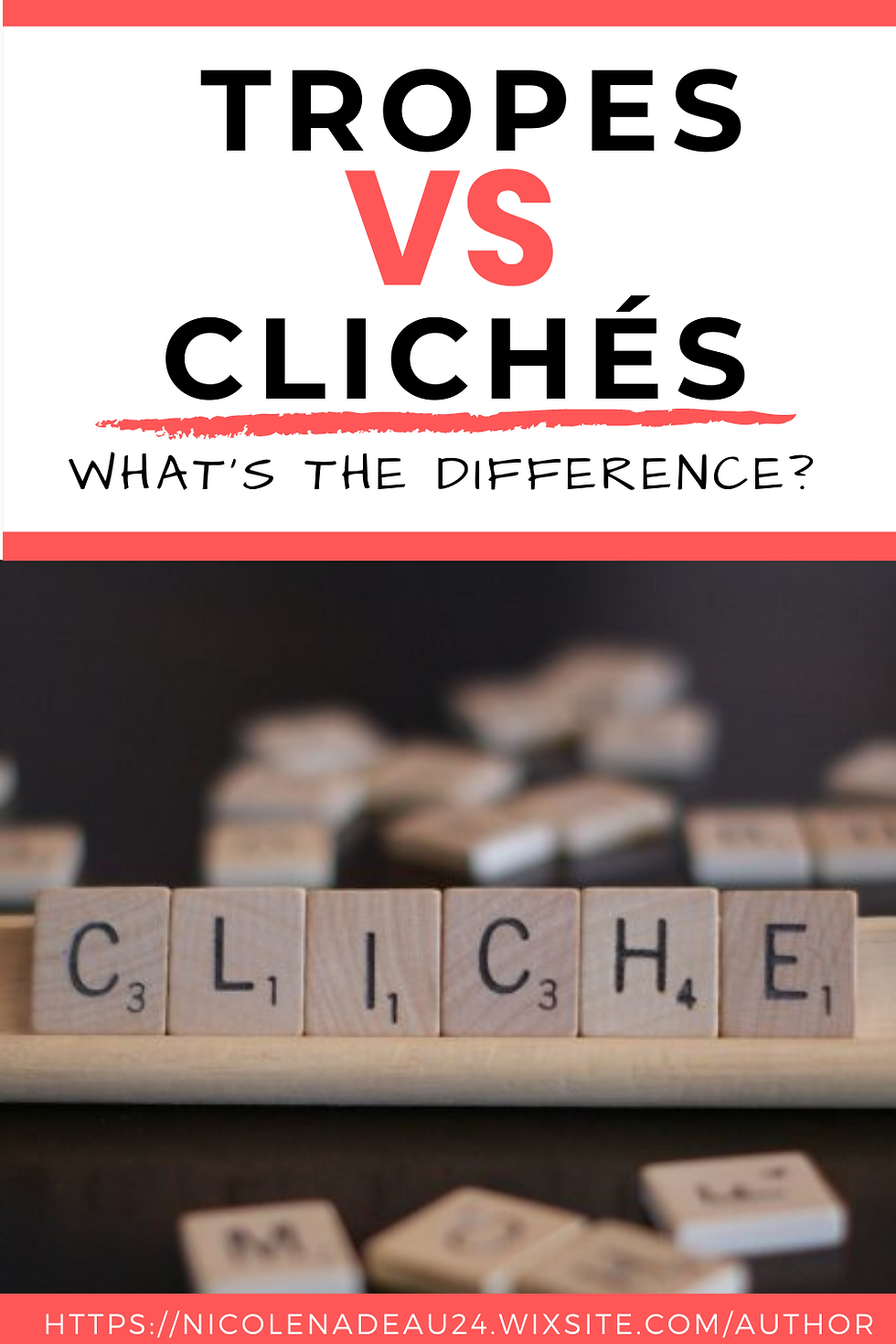Trope vs Cliché: What’s The Difference?
- Nicole Nadeau

- Oct 1, 2020
- 2 min read
We all encounter tropes and clichés every day, whether we know it or not. They’re in TV shows, movies, books, anything that can tell a story. And while tropes and clichés are often talked about together, people tend to confuse the two.
Is there a difference? Absolutely.
I’ll admit that I didn’t know what a trope was when I first started writing. As I heard it more and more, I decided to look it up and discovered I already knew what it was.

A trope is any literary device. It can be used for the plot, characters, even visual cues. Tropes are immediately recognizable because they’re familiar. We see tropes starting from when we’re little kids. So as we grow up, we recognize these themes throughout a wide range of stories.
Some great examples of tropes are the Reluctant Hero, the Comedic Relief, Light is Good and Dark is Evil, and a Race Against Time. Even the Hero’s Journey plot device is a trope. We’ve all encountered these: Sith wear black and Jedi wear lighter colors in Star Wars, Peter Parker often questions his decision to become Spider-Man, Genie brightens the mood in Aladdin, and Phileas Fogg has only eighty days to traverse the world in Around the World in Eighty Days. And both Star Wars and Lord of the Rings use the Hero’s Journey device. These tropes are recycled over and over again but are changed slightly between stories so they don’t feel tired.
When tropes do become tired, they turn into clichés.
Clichés are common knowledge. They’re the Damsel in Distress, the Love Triangles, the Chosen One, the Brooding Rebel, the list goes on. We’ve seen these tropes so much that we become sick of them. It feels like the same story is stuck on repeat.
But clichés aren’t a lost cause. They can be brought back to life if you put a spin on them. The Damsel in Distress saves herself. The person at the center of the Love Triangle chooses no one. Adding small twists to them will wake up these tired tropes and engage readers.
Tropes and clichés are not the same thing.
There will always be a trope in every story. But they’re not bad. Clichés are. So if you want to make sure a trope doesn’t turn into a cliché, put a new twist on it. Your story will feel fresh and exciting, which will make readers flock to it.
Make sure to subscribe to stay up to date!



Comments